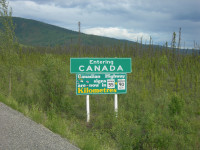Appeared in the Toronto Star on February 1, 2016 as Canada is About to Sign the Pacific Trade Deal. What Next? Later this week, the 12 countries that make up the Trans Pacific Partnership, a massive global trade deal that includes Canada, the United States, and Japan, will gather in […]
Archive for February, 2016
The Trouble with the TPP, Day 22: Expanding Border Measures Without Court Oversight
The Trouble with the TPP series continues with IP enforcement and border measures provisions, which are illustrative of Jim Balsillie’s concern about Canada’s failure to set its own IP policy. Yesterday’s post noted that the U.S. demanded that Canada provide a report card every six months on its customs activities, meet on the issue whenever the U.S. demands, and face the possibility of a dispute settlement complaint for failing to comply with these rules. The TPP goes further, however, as it will require Canada to create a system to allow for the detention of goods with “confusingly similar” trademarks.
Article 18.76 of the TPP establishes “special requirements related border measures” which includes allowing for applications to detain suspected confusingly similar trademark goods as well as procedures for rights holders to suspend the release of those goods. The required change is striking since Canada just overhauled its rules for border measures under pressure from the U.S. The Canadian approach did not include “confusingly similar” trademark goods, recognizing that such goods are not counterfeit and that requiring border guards (who rarely have legal training) to make exceptionally difficult judgments about whether imported goods violate the law is bad policy.
The Trouble with the TPP, Day 21: U.S. Requires Canadian Anti-Counterfeiting Report Card
This weekend, former Research in Motion co-CEO Jim Balsillie wrote a must-read opinion piece in the Globe and Mail on the TPP. Balsillie makes a compelling case for how Canadian IP policy has failed in light of decisions to consistently cave to foreign pressures:
Starting in the 1980s, Canadian policy makers and politicians blindly bought the narrative lobbied by foreign corporations, first in the pharmaceutical industry and then across all sectors, that stronger IP protection would lead to more domestic innovation and prosperity.
Three decades later, our pharma R&D has declined dramatically and drug prices for Canadian consumers are among the highest in the world. Our largest technology companies are much smaller now than 10 years ago and we have zero growth in innovation outputs over the past 30 years.
We should have learned our lesson by now, and yet the same outdated thinking from the 1980s is back on display from today’s TPP proponents: Focus on aligning our domestic IP laws with the U.S. system and hope for the best. TPP needs to be assessed not for its legal purity or alignment to U.S. laws, but for the economic impacts colonial IP policies have on Canada. After all, Canada has aligned its laws with the United States both directly and indirectly in several international treaties over the past three decades, and our innovation performance always faltered thereafter.
The Trouble with the TPP series has already reviewed how the TPP offers more of the same through policies such as copyright term extension and locking in extended patent protections. The agreement also addresses IP enforcement and border measures, just months after Canada changed its rules to provide more protections and enforcement.








